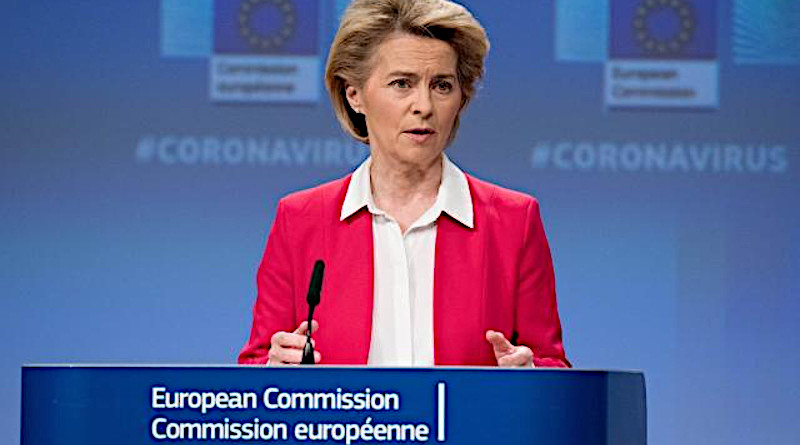Coronavirus Failures A Reminder Of EU’s Shortcomings – OpEd
By Arab News
By Yasaar Yakis*
The question of whether the global importance of the EU is in decline has been on the agenda for years. Individual members of the EU will continue to play their role in world politics, but the emergence of China — with its population three times the size of the entire European bloc — will have a greater impact on the global economy, science and politics. We may call this the new reality of the world, rather than the decline of the EU.
Three recent events have brought the EU’s performance back on to the agenda. One was the EU’s performance during the Syrian refugee crisis, in which it fell short of fulfilling its promises. Second was Brexit and third is the coronavirus disease (COVID-19) pandemic.
Brexit put the first stain on the EU’s attractiveness. In the early 1970s, when the UK applied for membership of the European Economic Community, as it was known at the time, dissenting voices — including from Labour Member of Parliament Peter Shore — opposed the idea on the grounds that the decision-making prerogative over British citizens should not be shared with the parliaments of other countries.
One of the EU’s features that acts as a burden is its voting system. The main rule was unanimity. But, as more countries with smaller populations joined the organization, reaching a unanimous consensus on all subjects became more difficult. Unanimity meant, in practice, that a country like Germany with more than 83 million inhabitants had the same voting weight as Malta, whose population is less than half a million. As a result, the number of areas subjected to the unanimity rule was gradually reduced. They include, at present, sensitive subjects such as taxation, social security or social protection, the accession of new countries, foreign and common defense policy, and operational police cooperation between the member states.
In 2014, the unanimity rule was smoothed over by the introduction of the qualified majority rule. It is a complicated method, but it is worth examining how difficult it is to combine the sovereign rights of member states with reality. The qualified majority rule requires that any proposal has to come from either the European Commission or the EU’s high representative for foreign affairs and security policy. Furthermore, the following two conditions have to be met at the same time: 55 percent of member countries should vote in favor and the decision should be supported by nations representing at least 65 percent of the total EU population. If the proposal instead comes from the member states, the rules are slightly different. More stringent criteria have to be met in this case: At least 72 percent of countries in favor, as well as 65 percent of the population.
As if this was not complicated enough, the EU constitution also provides for a mechanism to counter what is known as a blocking minority. This is a measure to protect the majority of countries from the domination of fellow members with large populations. The blocking minority rules require that at least four countries should vote against a proposal for it to be rejected. There are other rules that make the voting procedure even more complicated, but there is no need to go into such details.
There is also the bargaining among member states on the nationality of candidates filling important positions in the EU decision-making mechanisms. Should they be German or French? Should they belong to the European People’s Party bloc or to the socialist bloc? Sometimes, additional criteria such as gender equality also have to be observed.
When all these criteria are taken into account, the EU’s performance and its effectiveness in the world arena is negatively affected. We have observed this lack of effectiveness during the COVID-19 pandemic. The performance has varied from one country to another. Germany has been one of the best performers in the world, while Italy and Spain are among the worst. But, as a whole, the pandemic has been the first serious test of the solidarity among EU member states — and the bloc failed in this regard.
Italy’s early, urgent request for help fell on deaf ears in almost all EU countries. This may be due to the lack of emergency planning for such circumstances. Despite this, the member nations should have demonstrated more solidarity. Ursula von der Leyen, the president of the European Commission, made an apologetic public statement recognizing the EU’s failure to rush to help a member country. But one swallow does not make a summer.
- Yasar Yakis is a former foreign minister of Turkey and founding member of the ruling AK Party. Twitter: @yakis_yasar

